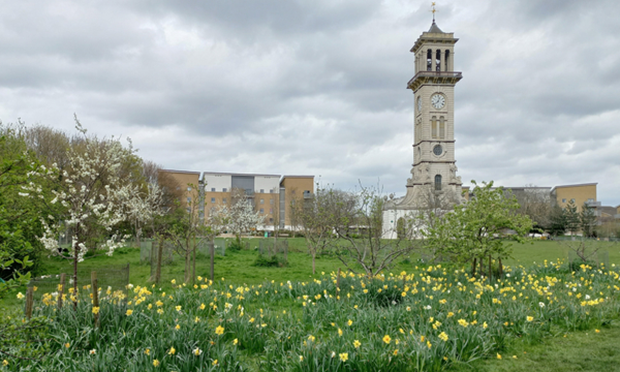Council to continue locking parks after locals raise alarm over crime and disorder

Caledonian Park, pictured last year. Image: Islington Council
Council plans to leave park gates unlocked overnight were quashed due to residents’ fears over anti-social behaviour and funding, a report has revealed.
Two weeks ago the Town Hall confirmed it would reverse course on proposals to end its locking-up policy for all but three gardens and parks in the borough.
Following the four-week consultation period, during which over 1,700 residents responded, council documents published today revealed the majority of those asked thought it would be a harmful policy.
Their “significant” concerns came over a potential rise in crime and disorder and “further disinvestment” in parks, the council’s report stated.
The scheme was tipped to save the borough £140,000 per year, of which £40,000 was due to be put back into the parks’ security budget.
This would have served the purpose of “allowing the council to better address anti-social behaviour [ASB] across all 122 Islington parks,” the Town Hall added.
Of the thousands of residents surveyed, many shared their “increased stress and worry” from the spectre of heightened anti-social behaviour (ASB), noise disturbance, vandalism, drug dealing and smoking.
Respondents pointed to the dangers of walking through unlit parks at night, especially for women and young students, alongside the potential harm to wildlife as a result of “increased human activity”.
They also expressed fears over a spike in burglaries and muggings should the parks be left open 24/7, and stressed the need for more staff and park wardens to ensure the spaces were safe and well-kept.
To achieve this, some suggested investing more in security instead of cutting costs.
The report stated respondents also floated the option of reallocating funds from other areas, “such as reducing council expenses”.
Some were sceptical about the council’s willingness to listen to residents’ views and concerns.
Nearly nine in 10 (86 per cent) respondents felt that leaving some parks unlocked would have an impact on them.
Over 70 per cent said they lived on the border of, or “immediately adjacent” to, one of Islington’s parks.
The council had asked those surveyed for any alternative ideas that would take stewardship of park gates away from the local authority.
Key suggestions included asking individuals to take charge of locking and unlocking, in exchange for council tax discounts.
Other options floated was to manage gate-locking from a “central control” through the use of artificial intelligence, while others suggested asking police to step up patrols in these areas to deter ASB.
The report did not lay out how many were in favour or against unlocking most of the borough’s parks overnight, but stated that “most responders felt it would have a negative impact”.
